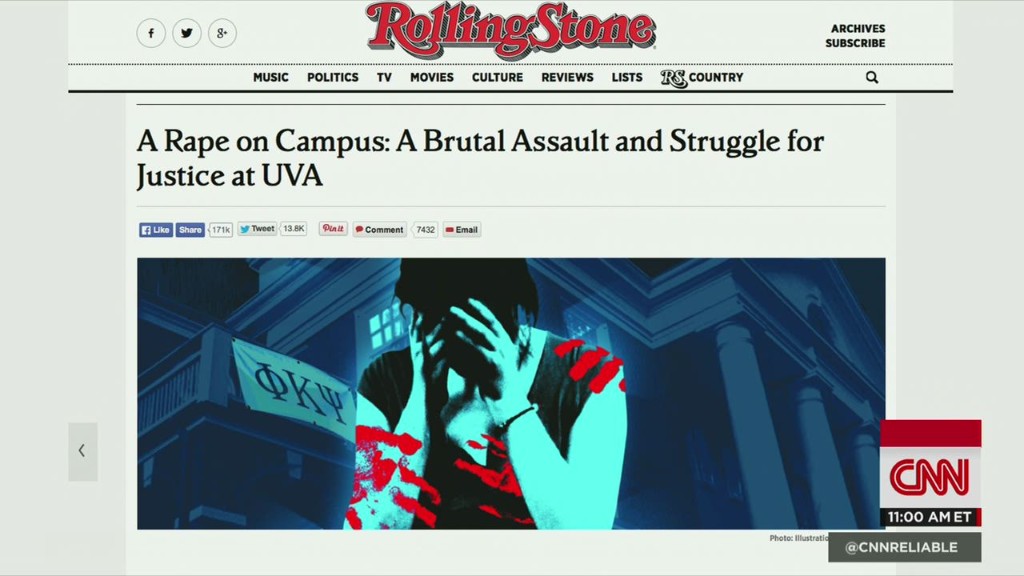
Columbia University's graduate school of journalism will review what went wrong in the making of Rolling Stone's now-disputed article about an alleged gang rape at the University of Virginia, the magazine said Monday.
"As soon as they are finished, we will publish their report," Rolling Stone publisher Jann Wenner said in his first public remarks about the
article, which was published on November 19 and was received like a shockwave at UVA.
Wenner did not announce any changes at the magazine, like disciplinary actions against any of the employees involved in the production of the article. The author of the article, Sabrina Rubin Erdely, is a contributing writer to the magazine; she has not responded to interview requests.
Erdely's 9,000-word article titled "A Rape On Campus" initially garnered widespread, mostly sympathetic media attention; it also prompted the UVA president to suspend all fraternity activities on campus and promise a full investigation.
But less than a week after its release, critics began to ask questions about some of the details in the alleged victim's account and about Rolling Stone's decision not to contact the seven alleged attackers. Followups by The Washington Post, CNN and other news outlets have identified a troubling number of contradictions and discrepancies.
On December 5, the magazine published an extraordinary editor's note that said "we apologize to anyone who was affected by the story and we will continue to investigate the events of that evening" in late 2012 when the alleged attack occurred.
Related: Rolling Stone apologizes: what now?
Since then, reporters have found even more holes in the article. There have been indications that Erdely and editors at the magazine have been re-reporting the article and trying to clear up some of the discrepancies. But until Monday there had been no response to outside calls for an investigation into the magazine's editorial decision-making.
In Wenner's announcement, which will be printed in the next issue of Rolling Stone, he noted that the article "generated worldwide attention and praise for shining a light" on attempted coverups of college sexual assaults.
He said Rolling Stone responded "immediately" when The Post and others raised questions about the article. Wenner reached out directly to Columbia to ask for the review.
Now, he said, "we have asked the Columbia Journalism School to conduct an independent review -- headed by Dean Steve Coll and Dean of Academic Affairs Sheila Coronel -- of the editorial process that led to the publication of this story."
Coll said Rolling Stone "approached us last week about this."
Responding to questions via email about the scope of the review, he said, "We are going to focus on the editorial process but have the freedom to report in any direction that we believe would be germane and of public interest."
No Columbia students will be involved in the review -- just Coll, Coronel and a researcher who works in his office.
"I don't know if the J-School has ever done this before...not recently, at least," Coll said.
Coll and Coronel said in a joint statement that they did not "want to comment further about our work until it is completed."
A Rolling Stone spokeswoman said "there's no timeframe given" for the review: "they can have as much time as they need."
Already, the magazine published by the journalism school -- the Columbia Journalism Review -- has been weighing in on the journalistic failures spotlighted by the article.
"The whole issue should serve as a warning to other journalists who report on rape to be extra cautious in their reporting: If any questions are left partly unanswered, the story risks becoming counterproductive and ultimately supporting attitudes of skepticism and indifference," one of the magazine's writers said on December 2.


